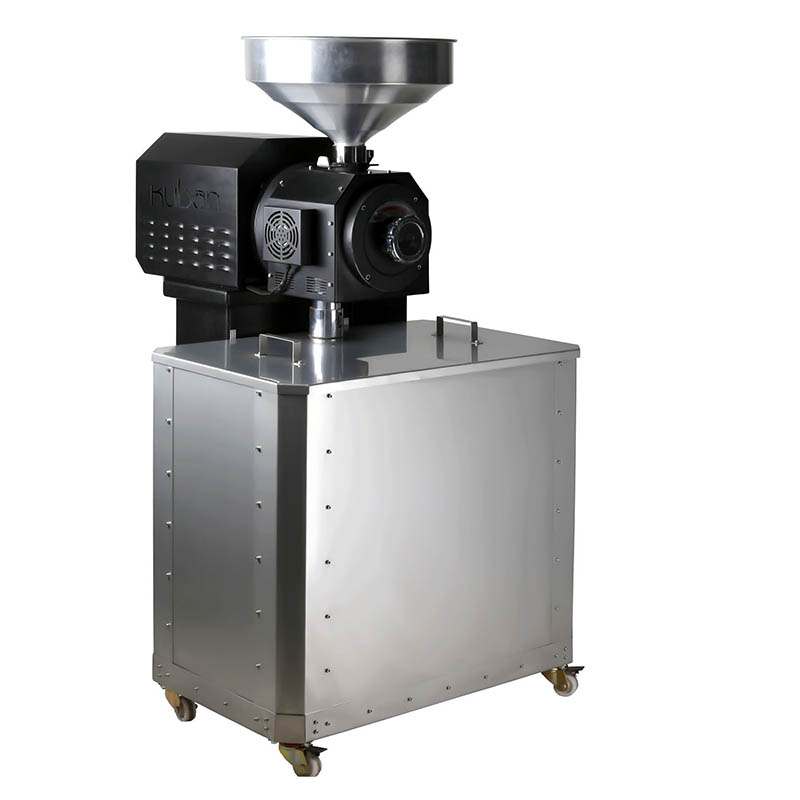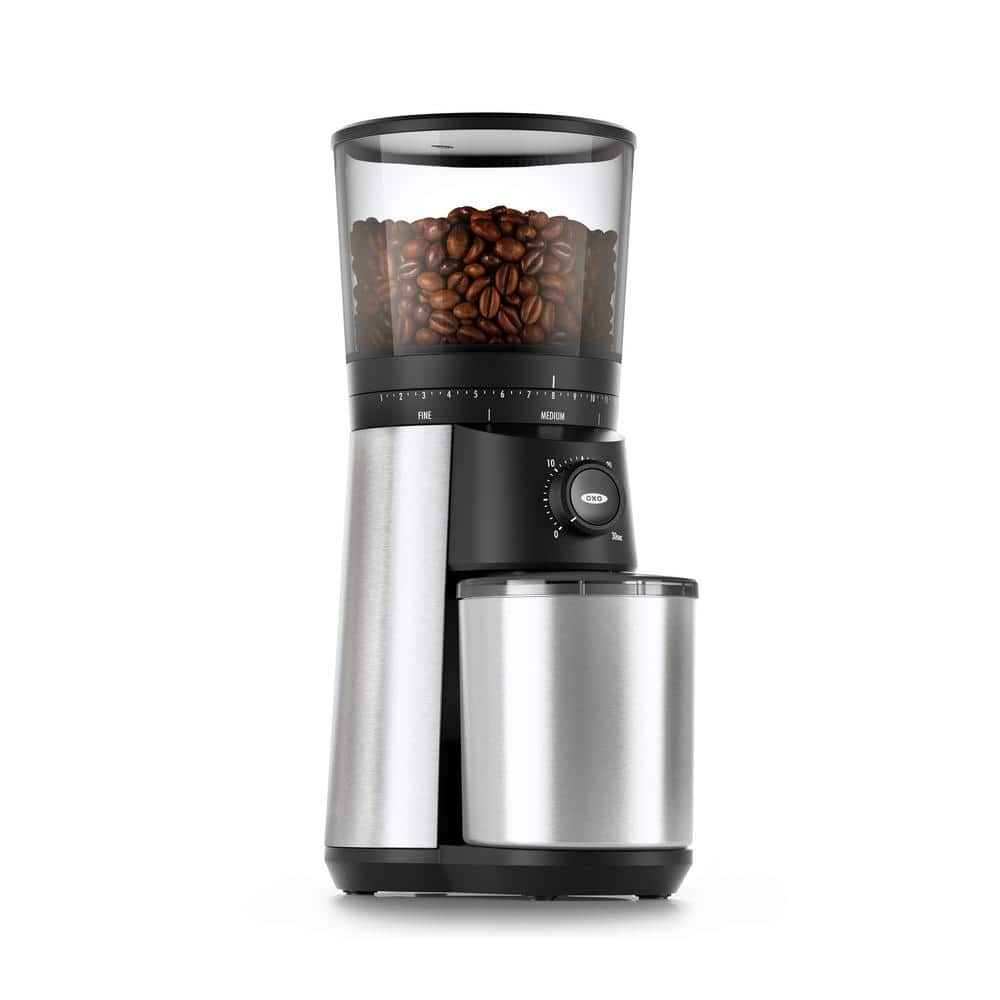Industrial Coffee Grinder: Choosing the Best Choice for Your Shop
Industrial Coffee Grinder: Choosing the Best Choice for Your Shop
Blog Article
Industrial Coffee Grinder Overview: Increase Efficiency and Top Quality
In the competitive landscape of coffee production, picking the right industrial coffee mill plays a critical role in enhancing both effectiveness and product top quality. Comprehending the nuances of numerous mill types and crucial features-- such as adjustable grind setups and durable building and construction-- can dramatically affect the final flavor profile of the coffee.
Comprehending Grinder Kinds
When selecting an industrial coffee mill, recognizing the different types offered is important for enhancing both flavor extraction and functional effectiveness. Both primary types of grinders are blade grinders and burr grinders. Blade mills make use of sharp blades that cut coffee beans right into irregular sizes, bring about uneven extraction and potentially unwanted tastes. While blade grinders are commonly much more ideal and economical for small-scale operations, they are generally not advised for industrial use.

Inevitably, picking the appropriate kind of grinder is indispensable to maintaining high quality and efficiency in coffee production, making it critical for companies to purchase top quality burr mills for ideal outcomes.
Secret Features to Consider
Selecting a commercial coffee mill calls for careful consideration of a number of essential functions that can dramatically influence both performance and the general coffee experience. One of the key facets to examine is the grinding system. Burr grinders are typically chosen over blade mills, as they supply a constant grind size, which is essential for ideal extraction and flavor.
Another essential attribute is the mill's ability. A flexible grinder with numerous settings enables you to tailor the grind dimension to various brewing techniques, improving the coffee's flavor profile.
Assess the grinder's noise degree, specifically in an active coffee shop or manufacturing atmosphere, where excessive sound can be disruptive. Spending in a grinder that stabilizes these attributes can greatly enhance both functional performance and the top quality of the coffee offered.
Optimizing Grinding Refine
To achieve the ideal results in coffee preparation, optimizing the grinding procedure is vital. The grind size substantially influences extraction, flavor, and general top quality of the made coffee.


In addition, checking the grinding rate can optimize the process. Slower grinding commonly produces less warm, maintaining delicate tastes and aromas. Conversely, faster grinding may create extreme warmth, adversely influencing the coffee's high quality.
Maintenance and Treatment Tips
Proper maintenance and treatment of industrial coffee grinders are vital for guaranteeing optimum efficiency and durability. Regular cleaning is the foundation of upkeep; residue accumulation can impact flavor and grinding efficiency. It is advisable to clean up the grinder after each check out here use, cleaning down the outside and removing any kind of coffee premises from the burrs.
Additionally, check the grinding burrs for damage. Plain burrs can endanger grind uniformity, so they should be replaced as necessary. Industrial Coffee Grinder. Periodically adjusting the grinder is additionally important, as this keeps the preferred work size for various brewing approaches
Lubrication of relocating components should be carried out according to the supplier's requirements, as this reduces rubbing and lengthens the life of the devices. It is necessary to use food-grade lubes to ensure security and compliance with health guidelines.
Finally, maintain the mill in a completely navigate here dry and stable atmosphere to stop corrosion and deterioration. By adhering to these maintenance and care pointers, operators can enhance the effectiveness of their commercial coffee grinders while ensuring top notch result and expanded operational life.
Return on Investment Evaluation
Reviewing the return on investment (ROI) for commercial coffee grinders is crucial for organizations looking for to optimize Home Page their coffee production capacities. A comprehensive ROI analysis aids figure out the economic feasibility of investing in premium mills, allowing organizations to weigh the preliminary expenses against possible gains.
To perform an extensive ROI evaluation, services ought to take into consideration a number of essential elements. Initially, evaluate the purchase cost of the grinder, consisting of installment and any necessary modifications to existing infrastructure. Next, compute functional prices, consisting of power usage, maintenance expenditures, and labor efficiency enhancements. High-performance mills commonly lead to lowered grinding time and boosted throughput, which can substantially improve performance.
In addition, think about the effect on product top quality. Industrial Coffee Grinder. Superior mills generate a more regular work dimension, which can enhance flavor accounts and customer complete satisfaction, inevitably driving sales. By enhancing the quality of the final product, companies can justify higher rates, leading to raised earnings
Verdict
In recap, an industrial coffee grinder plays a critical duty in enhancing both effectiveness and item high quality within coffee production. Inevitably, the calculated investment in a reputable mill contributes substantially to improved revenue and competition in the coffee market.
In the competitive landscape of coffee manufacturing, picking the ideal commercial coffee mill plays an essential duty in enhancing both effectiveness and product quality. The 2 primary kinds of mills are blade grinders and burr mills. Within the burr grinder group, there are flat burr grinders and conical burr mills, each with its advantages. Burr mills are typically liked over blade grinders, as they provide a constant work size, which is vital for ideal removal and taste.
In recap, a commercial coffee grinder plays an essential function in boosting both effectiveness and product quality within coffee production.
Report this page